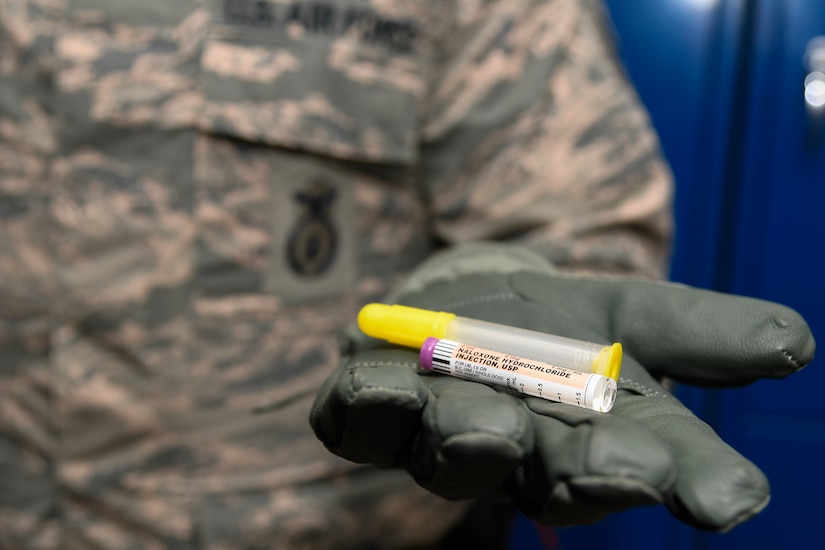By Lisa Ferdinando, DoD News, Defense Media Activity
WASHINGTON -- The Military Health System is making progress
in preventing and managing opioid abuse among its beneficiaries, but further
actions in education and prevention are needed, the director of the Defense
Health Agency said yesterday.
Navy Vice Adm. Raquel C. Bono told the House Armed Services
military personnel subcommittee that the Military Health System has an
obligation to provide the best care for its beneficiaries, including in pain
management, while taking steps to prevent addiction.
"The department has made strides in managing opioid
abuse within our system and is continuously looking to further enhance our
programs,” she told the committee members.
Staff Sergeant Matthew Pick, 66th Security Forces Squadron,
holds a nasal applicator and naloxone medication vial.
Less than one percent of active duty service members either
abuse or are addicted to opioids, she said, adding, the overdose death rate
among active duty service members is 2.7 out of 100,000, half of the national
rate when adjusted for demographics.
Steps to Educate, Prevent, Manage
In the Military Health System, 83 percent of long-term
opioid patients are older than 45 years old, most likely to be retirees or
retiree family members, and obtain most of their care from outside of military
hospitals and clinics, Bono said.
She outlined steps the department is taking to prevent
opioid abuse, to include: instituting comprehensive provider education that
leads to a reduction in opioid prescribing; expanding partnerships with
federal, state, private sector and contracted partners; developing alternatives
to opioids for both direct and purchased care settings; and further expanding a
prescription drug monitoring program to include state monitoring programs.
Commitment to Patients, Nation
The Military Health System’s mission is to ensure the medical
readiness of the nation’s armed forces and provide world-class healthcare for
its 9.4 million beneficiaries, Bono told the committee.
As part of the larger U.S. health system, the Military
Health System has a shared responsibility in addressing the nation’s opioid
epidemic, she said.
"This crisis is touching the lives of so many of our
fellow citizens and the department is committed to playing its part to help
combat the epidemic and ensure our patients receive the finest care we can
provide,” Bono said.
She explained DoD’s approach to the opioid crisis has a dual
focus: to implement a comprehensive model of pain management that focuses on
nonpharmacologic pain treatments; and to optimize safe usage for patients when
opioid use is necessary.
The department, according to Bono, is “making headway, but
there is more to be done in educating our patients and providers on threats
from opioid addiction and strategies to reduce abuse.”









No comments:
Post a Comment